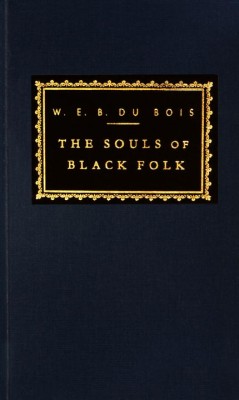| The Souls of Black Folk: Introduction by Arnold Rampersad Contributor(s): Du Bois, W. E. B. (Author), Rampersad, Arnold (Introduction by) |
|
 |
ISBN: 067942802X ISBN-13: 9780679428022 Publisher: Everyman's Library OUR PRICE: $19.80 Product Type: Hardcover - Other Formats Published: October 1993 Annotation: First published in 1903, this eloquent collection of essays exposed the magnitude of racism in our society. The book endures today as a classic document of American social and political history: a manifesto that has influenced generations with its transcendent vision for change. |
| Additional Information |
| BISAC Categories: - History | United States - General - Literary Criticism | American - African American - Social Science | Discrimination & Race Relations |
| Dewey: 973.049 |
| LCCN: 93001859 |
| Lexile Measure: 1280 |
| Series: Everyman's Library Classics |
| Physical Information: 0.82" H x 5.18" W x 8.33" (0.86 lbs) 272 pages |
| Accelerated Reader Info |
| Quiz #: 157695 Reading Level: 9.6 Interest Level: Upper Grades Point Value: 15.0 |
| Descriptions, Reviews, Etc. |
| Publisher Description: The Souls of Black Folk is both a groundbreaking work of sociology and an influential cornerstone of African-American literature. From the moment it was published in 1903, this unique and stirring blend of history, essay, fiction, and memoir set the terms of the conversation about race in America and established W. E. B. Du Bois's enduring reputation as poet, prophet, and scholar. Du Bois famously named "the problem of the color line" that still haunts us today and diagnosed the "double consciousness" of a people forced to live behind a veil. In raising that veil, his book makes an impassioned claim for the power and potential of black culture, the accomplishments of its art, the depths of its spirituality, and its capacity for grandeur in thought and expression. With the lyricism of his prose and the ease with which he moves from the immediacy of journalism and sociology to the permanence of literature, Du Bois transforms a profound historical dilemma into the matter of art. But more importantly, by tracing the tragic past that led to the inequities of the present, he outlined the way forward in the struggle for freedom. It is a testament to his prescience that after more than a century his masterpiece retains its relevance and uncompromising power. |